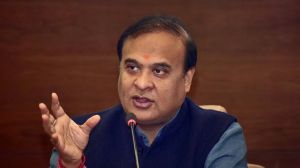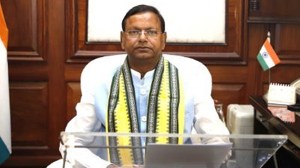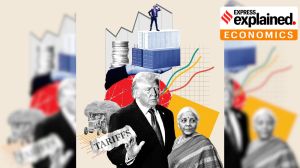Security Blanket
Kandula Subramaniam reports on the simmering debate on security concerns and overseas FDI

It all began as concerns around China-centric foreign direct investments FDI in key infrastructure projects into the country. But now, this simmering debate is turning out to be a larger issue with the Centre looking at possible 8216;8216;legal policy options8217;8217; being built into the Investment Policy.
This would give the government the right to step in and protect the country8217;s national security interests in the event any FDI is perceived to be a threat to the country. Sources explained that at present there is no law, which, for instance, protects the country8217;s national security interests in case there is a change in ownership in a parent company that routes its investments through one of its subsidiary companies into India. This is just of one of the concerns that is expected to be addressed in the policy.
Over the past month, there have been at least two meetings on the security concerns posed by FDI into the country8217;s critical infrastructure sector where the economic ministries and even the Ministry of External Affairs cautioned that any change in the policy framework shouldn8217;t send 8216;8216;wrong signals8217;8217; to the investor community.
That said, on the other hand, intelligence agencies such as the Research and Analysis Wing R038;AW pointed out that countries such as the US had provisions under the Defence Protection Act to prohibit access of key infrastructure assets to firms for whom there were security concerns.
Why, recently the US State Department said that 16,000 computers it bought from Chinese firms Lenovo would not be used for classified work. While the Chinese government owns 28 of Lenovo, the company is now headquartered in the US and has bought IBM8217;s PC Division.
So R038;AW suggested that security considerations could be built up in the investment policy itself. Sources said such measures would allow a probe into the quality of investments at the approval stage itself. And even allow the government to step in case there8217;s a perceived threat to the national security interests during the life of the project.
As things stand, individual economic ministries are yet to give a feedback to the National Security Advisory Council for giving a final shape to the new policy.
The China Factor
The entire issue came to the fore after concerns were raised about Egyptian company Orascom buying stake in Hutchison Telecommunications International. Then, Hutchison Port Holdings8217; HPH bid for Mumbai and Chennai ports was put on hold by the Cabinet Committee on Security. Both of these are Chinese companies.
At one of the meetings, R038;AW pointed out that there were 8216;8216;security concerns with regards to HPH for their connection with PLA8217;8217; and that these were related to allowing access to strategic ports like Mumbai after the Ministry of External Affairs pointed out that they had no reservations on allowing any particular firm for FDI in the infrastructure sector.
Further, the MEA had even pointed out that restrictions imposed would have an adverse effect on the government8217;s investment policy and that it would be difficult to justify country-specific restrictions. It added that the issue of a company changing ownership at a later stage would be difficult to deal with.
One of the ways out, as suggested by the economic ministries and the R038;AW was to have 8216;8216;security considerations built up in the investment policy8217;8217; and 8216;8216;put in place a critical infrastructure protection plan to monitor the security concerns8217;8217;.
The US, for instance, has special provisions to protect its critical infrastructure against physical and electronic threats and has also created an infrastructure protection task force along with US intelligence forces. These steps were taken to ensure critical infrastructure8212;power, telecom, gas pipelines and so on8212;where there are a lot of private investments, is not open to misuse, threatening the country8217;s security.
While the meetings did not specially discuss the power sector, where unlike telecoms, 100 FDI is allowed, sources said the new safeguards would apply here . They gave the precedence of how a foreign company that invested in a power project in India, after going bankrupt, removed critical chips from the project and parked them outside the country.
- 01
- 02
- 03
- 04
- 05































